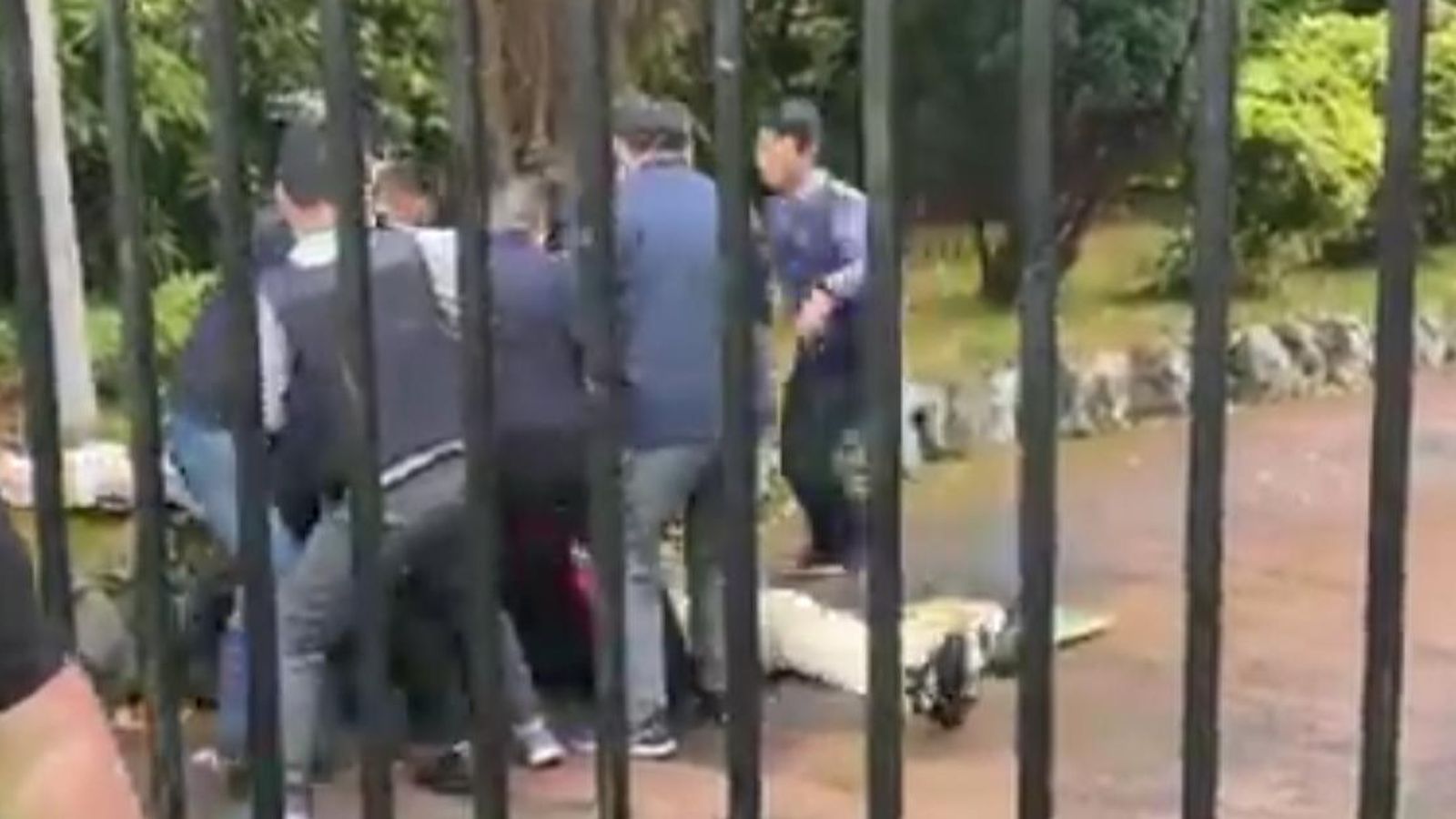Workers who build and maintain the UK’s nuclear warheads are to vote on strike action over a pay dispute.
Nearly 2,000 staff at the Atomic Weapons Establishment (AWE) – a company that develops and services the Trident nuclear deterrent – will hold a ballot on industrial action for two weeks from 24 October.
It comes after staff at the Berkshire-based firm rejected a 5% pay increase and additional lump sum.
They could join rail and postal workers, lawyers, nurses, and several other professions in walking out over real terms pay cuts amid the cost-of-living crisis.
Mike Clancy, general secretary of the Prospect union spearheading the vote, said: “Safely maintaining the UK’s nuclear deterrent is a complex and highly stressful operation that requires an extremely high level of dedication and training at all levels.
“It should attract a commensurate level of pay and respect for these staff who keep the country safe.”
With inflation reaching a 40-year high at 10.1% in September, most workers are facing pay packets unable to keep up with spiralling prices.
At least 45 baby deaths could have been avoided at two Kent hospitals, report into maternity care at NHS trust finds
Liz Truss ‘completely committed’ to pensions triple lock after chancellor agreed move today
Inflation rises to 10.1% as economy reels from mini-budget chaos
Please use Chrome browser for a more accessible video player
The government had been embroiled in speculation new Chancellor Jeremy Hunt would abandon the triple lock on pensions – which guarantees state pensioners getting increases either in line with inflation, earnings or 2.5% – whichever is higher.
But Prime Minister Liz Truss appeared to commit to it at Prime Ministers Questions on Thursday, despite Mr Hunt’s earlier comments that no commitments would be made until his medium-term fiscal statement on 31 October.
Fears Putin could be planning Black Sea strike
The AWE strike also comes amid reported concerns Russia’s Vladimir Putin could be planning to detonate a nuclear warhead over the Black Sea.
On Wednesday he imposed martial law in four Ukrainian regions Mr Putin has claimed are now Russian territory – Donetsk, Luhansk, Kherson and Zaporizhzhia.
The move, nearly eight months into the war, marks the latest escalation by the Kremlin to counter a series of major defeats at the hands of Ukrainian forces since the start of September.
Defence Secretary Ben Wallace arrived in Washington for emergency security talks on Tuesday.









